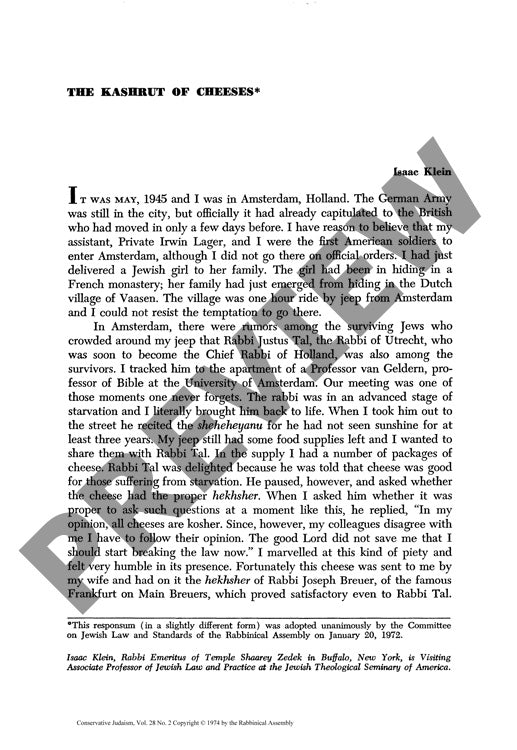The Kashrut of Cheeses
Couldn't load pickup availability
For centuries, Jewish law has wrestled with the permissibility of cheese made by non-Jews, primarily due to concerns about rennet derived from non-kosher animals. Through a combination of talmudic analysis and direct investigation of modern cheese production facilities in Wisconsin and Milwaukee, this research reveals that contemporary industrial cheesemaking bears little resemblance to the ancient practices that prompted rabbinic prohibitions. Modern commercial rennet undergoes extensive chemical processing that transforms it into what halakhic authorities term "davar hadash" (new creation) - the substance is thoroughly dried until "like wood," treated with strong acids and chemicals, and diluted beyond the threshold of "batel b'shishim" (nullified in sixty times its volume). Additionally, current government food regulations provide robust safeguards against the adulteration concerns that originally motivated the rabbis' restrictions. Based on the convergence of multiple halakhic principles - chemical transformation, thorough drying processes, dilution ratios, and regulatory oversight - this analysis concludes that all commercially available cheeses, both domestic and imported, hard and soft, are kosher regardless of rennet type. This responsum was unanimously adopted by the Rabbinical Assembly's Committee on Jewish Law and Standards in 1972.

More Information
-
Physical Description
-
Publication Information
Published 1974
ISBN
-
Publication Credits
Isaac Klein

